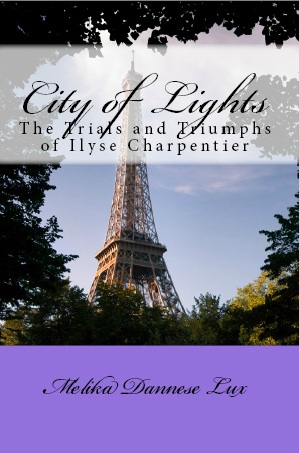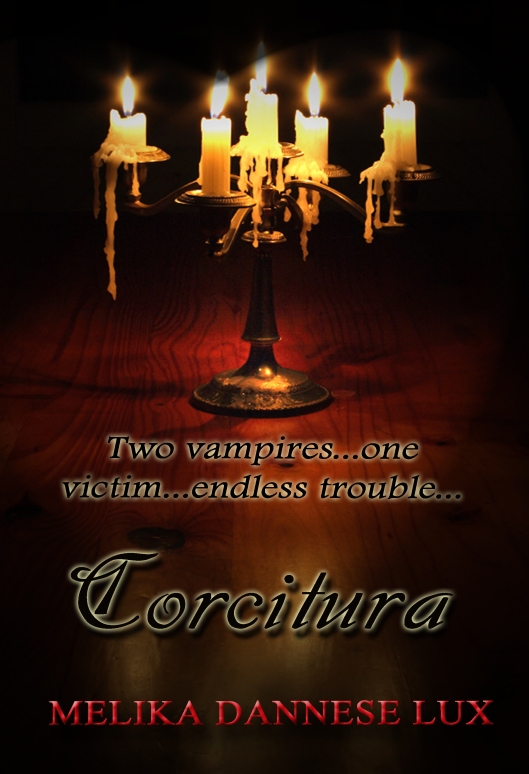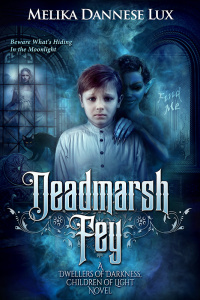Tags
#AmWriting, 100, 13, 15, 18, 1888, 1890s, 1894, 1975, 19th century, 2002, 2004, 2008, 2014, 2018, 2019, 24601, 30th anniversary, 40, 700, 8, a book addict's bookshelves, a fragment of life, a wizard should know better, ache, Agatha Christie, age, all we have to decide is what to do with the time that is given to us, alliance, allies, Amazon, amazon.co.uk, Amazon.com, ancient evils, anne rice, annihilation, Anniversary, answer the call, antestheria, aragorn, arianrhod, arthur, arthur machen, assumption, asunder, august, Augustin Boroi, australia, australian, authentic, author, Authors, autonomy, autumn, awestruck, bait, barber of seville, base motives, bear, beginning, bellows, belong, below, best friend, best wishes, betrayal, better angels, bide, birthday, black cats, black winged beast, blog, Blog Tour, blogger, bloggers, bloglovin, blogs, blood, blood wood, blood-soaked, bloodshed, book, book addict, book feature, book of mormon, books, Books In My Belfry, booksinmybelfry.com, born vampire, brainstorming, bram stoker, brandon, bride, British, brothers, brothers and sisters, bruce, business, C. S. Lewis, cable tv, calling, caroling, carte blanche, Carver, cat, catholic, cats, celts, characters, charpentier, chesterton, children, children of light, children of vampires, chocolate, chocolate chip, christened, christmas carols, christmas in july, chumming, City of Lights, City of Lights by melika lux, city of lights: the trials and triumphs of ilyse charpentier, classic, classical, cnn, coalition, Coffyn, Comedy, composed, conservation, constant source of inspiration, Constantinos, cooked, copies, copyright, coquette, corcitura, Corcitura feature, corruption, count, count orlok, Count Rakmanovich, Count Sergei Rakmanovich, Cover, creative fiction, cries blood, crime and punishment, curse, cut, cutwater, cutwater island, dance hall, dance of romance, danger, dangerous, dannese, dark, dark fantasy, dark lord, dark side, dark wreaker, darkness, dashing, dead bride, deadliest, Deadmarsh, Deadmarsh Fey, deal, death, december, deeper, defeat, demons, demons of the deep, denial, desire to weave stories, details, devil, dialogue, die, Discovery Channel, ditty, diva of the paris stage, dogs, donald trump, Dostoevsky, double blinds, Dracula, draculaesque, dragons, dramatis personae, drandeur, dread grandeur, dream, dreams, driving force, druids, dude, duology, dwellers, dwellers of darkness, dwellers of darkness children of light, earth, Eastern Europe, Eiffel Tower, email, embellishments, emblematic, emma stone, emotional, England, englishman, enraptured, envoys, epic, Eric Bradburry, erlkonig, Europe, European, everl'aria, everyone, evidence, evil, Excerpt, experience, exploitation, Facebook, faeries, fairy tales, fall, fallen kingdom, false bay, family, fantasy, fantasy is escapist, fascinated, fate, Fated, fated to die, father, fathomless, Faust, fearies, feature, feedback, female author, female vampires, female werewolves, female writers, fey, fiction, Film, films, Fin de siècle, finding home, fireplace, first novel, Folies Bergère, food network, foodtv, foot, foundation, fox news, France, Franz Schubert, free, free reign, freebie, freedom, French, french flag, French wine, friday, friends, Friendship, frodo, frodo baggins, full circle, fun, Fuseli, Gandalf, gandalf the grey, german, german lieder, Germany, ghosts, giveaway, gk chesterton, glamour of evil, gloomy, glories, glorious, glory, goethe, good and evil, good vs evil, gooderads, goodread, Goodreads, goose, goose is cooked, gothic, gothic novel, grabs, Grand Tour, great god pan, great white, great white shark, Greece, Gretchen am Spinnrade, grey beard, grey wolves, Greydanus, guardians, guides, guillermo del toro, Guinness, gustav mahler, guy fieri, h p lovecraft, hallmark, hallmark channel, hamilton, hammer, haunted, haunting of hill house, havelock, hazard, heart, henry fuseli, henry james, here there be dragons, hermit, hermitlife, hero, heroes, heroism, high school, higher selves, hinterland, historical fiction, historical romance, hollow, home, hope, hopes, hopes and dreams, horrifying, horror, horror herald, hosting, house, hugh jackman, Humor, Hunger Games, hybrid, hybrid vampires, I shout, Ian McCarthy, ian mckellen, iconic, idea, ilyse, Ilyse Charpentier, imagination, impact, in which a dashing Englishman woos mademoiselle Charpentier, in-depth, incendiu, Indie, inkling, inklings, insights, inspiration, inspirations, instill, Interview, iron reveals, irv, isobel, isobel vickers, Italy, J. R. R. Tolkien, jack, Jack the Ripper, jagged ones, JAWS, jawsome, jawsomeness, jean valjean, jess watkins, jingle bells, jingle sharks, Johann Wolfgang von Goethe, john william waterhouse, joseph sheridan le fanu, joy, JRR Tolkien, Jurassic Park, just keep swimming, katniss, kind, Kindle, kindle giveaway, Kip, Kipling, Knightley, knowing thine enemy, la la land, La Perle de Paris, la petite coquette, lad, languages, laptop, leave, legend, legendarium, legends, Leonora, Leonora Bianchetti, les miserables, library, lieder eines fahrenden gesellen, lies, life, light, lin manuel miranda, lineup, Links, lips, list, Lockie, loggerheads, logistical, London, longing, longing for home, longings, lord byron, lord of the rings, LOTR, Louvre, Love, love of reading, Luc, luck, lunch, lux, lynn's books, lyrics, machen, maddie, Madelaine Bradburry, mahler, malevolence, manipulation, Manon Larue, manor, marine biologist, mark lawrence, marked, mashup, master, masterclass, Maurice Charpentier, meanings, meant to be, media, melika, Melika Dannese Lux, Melika Lux, michael baker, miranda, modern times, monikers, mother, Movies, Music, musical, my calling, my dream, myth, names, nature of evil, nebulous, net galley, netgalley, new, new interview, new release, New York, news, night, nightmare, no sparkling, norse, norse mythology, norway, Nosferatu, novel, novelist, novels, now, now face-to-fey, oblivion, ocean, of darkness, older, ominous, opera, orange, original, orlok, overwhelming, Oxford, pages, pale, palming the ace, pan, panic, Paperback, Paranormal, parc monceau, parents, Paris, Parisian, Penny Dreadful, penny dreadfuls, peppy, performance, perspective, pianist, pict, piece, plausible deniability, play, plots, pointy hat, Polidori, pop culture, post, pre-raphaelites, press, prime time, primetime, professor fertig, promotion, prophecy, publication, publicity, publishing, puckie, pumpkin, pun, pure magic, questions, quick-fire, Quint, quites, quote, quotes, rapture, raucous, readers, reading, real, realms, reddit, renaissance, research, revenge, Review, rex, riveting novels of psychological suspense, robert shaw, roger, Roger Knightley, romance novels set in historic France, Romania, Romanian, rosina, rossini, rudyard kipling, ruination, rural, rural england, Russia, russian, ryan gosling, sacrifice, saga, samwise gamgee, sanderson, sangue de vita, Sangue di Vita, sauron, scary, scary vampires, scene, scenes, schadenfreude, schubert, sea, seal, seal island, sean astin, seasonal, seized, self-published fantasy blog off, Sergei, Sergei Rakmanovich, series, seven hundred years, sham, shaq, shaquille o'neal, shark chorus, Shark Week, sharking, Sharks, shirley jackson, siblings, silver-tongued devil, singer, singing, sir frank dicksee, snippet, social media, soldier, song, songs of the wayfarer, soprano, Sorina Boroi, soul, souls, spfbo, spoiler, Spooky, spring, spring-heeled jack, standchen, states, status quo, steal of a deal, Stefan, Stefan Belododia, Stefan Ratliff, stephen spielberg, stephenie meyer, story arcs, storytelling, storyweaving, stratosphere, stunning, success, summer, supernatural, supernatural thriller, superstition, surfer dude, Suspense, swathing, sweeney todd, swimming, sydney, T-Rex, talking animals, talking cats, tall tales, techniques, ten, terrifying, terror, the darkness within, The Fellowship of the Ring, the greatest showman, The Lord of the Rings, The Marriage of Figaro, the most wonderful time of the year, The Trials and Triumphs of Ilyse Charpentier, the very beginning, the white people and other weird stories, these vampires don't sparkle, thousand scar, three decades, three tons of him, Thriller, throat, tiny tim, Tolkien, Tollers and Jack, topics, Toulouse Lautrec, Tour Eiffel, tradition, tragedy, trahaearn, train, travel, travers, tricksy, trilogy, triumph, triumphant, true, true love, truth, Turn of the Screw, TV, Twilight, Twitter, Tyrian purple, UK, una voce poco fa, uncle silas, undead, up for grabs, updates, USA, vampire fiction, Vampire Hunter, vampire mythology, vampire mythos, vampires, vampiresses, vampiric, vampiric equality, vampiric transformation, vampirism, vamps, vampyre, varney, varney the vampire, varney the vampyre, Vasily Markolovick, vickers, Victorian, victorian age, villains, violinist, Vladec, Vladec Salei, vocal coach, vocation, voice, Vrykolakas, Wales, warnings and visitations, weak-minded, website, welsh, welsh mythology, Werewolf, werewolf transformation, white shark, Whitechapel, widget, Wilkie Collins, wine, winners, winter, wizard, wolf, woman in white, Wood, worth fighting for, wreaker, writer, writer's block, Writers, writing, writing life, writing process, years, Young Adult, young author, young female author, young love, Young Protagonists, young writer
Hi Everyone,
From now until August 15th, 2018, 100 Kindle copies of Deadmarsh Fey are up for grabs! For a chance to win my novel, all you have to do is enter the Goodreads giveaway, which you can do by clicking on the link in the widget below:
Goodreads Book Giveaway
Deadmarsh Fey
by Melika Dannese Lux
Giveaway ends August 15, 2018.
See the giveaway details
at Goodreads.
If you are one of the winners, after reading the book, it would be great if you could leave a review of Deadmarsh Fey on Goodreads and Amazon or any other social media sites you belong to. It’s wonderful hearing feedback from readers!
Thank you so much, and best of luck!
~Melika





